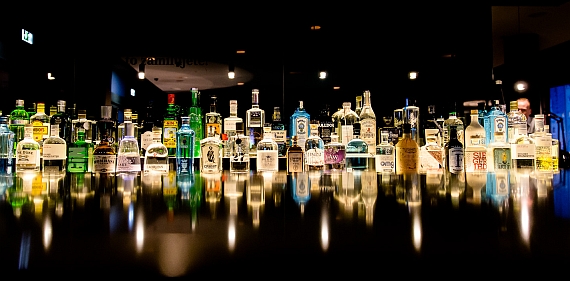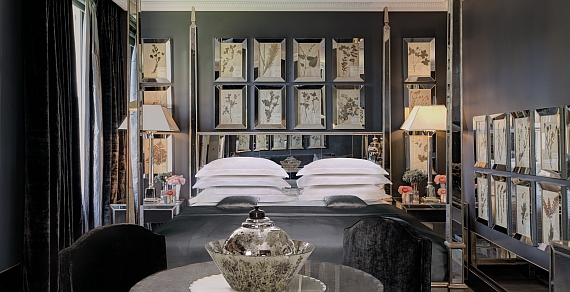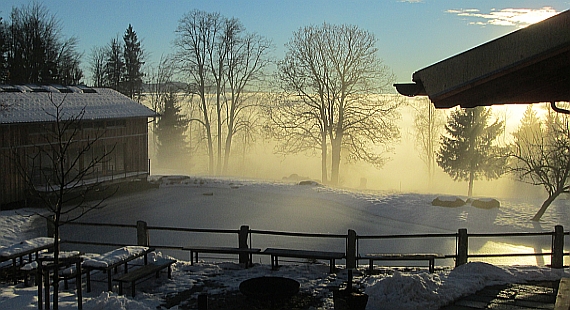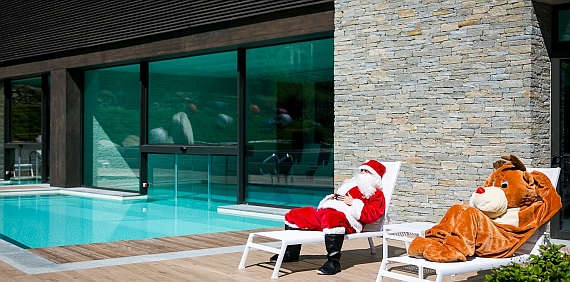
News & Stories
San Francisco. While Uber is still bleeding money, Airbnb is finally making profits. Unlike Uber, the rental platform benefits from a not so crowded environment, which allows it to squeeze prices and grow by bending the rules. Regulators across the world are now hitting back hard and new laws could cost Airbnb lots of money.
Gin, Gin!
Munich. "Motel One just works amazingly well." Dieter Mueller, CEO of Motel One Group, currently has no plans to change anything at all of the strategy of the low budget design group. He and his wife Ursula Schelle-Mueller, Chief Marketing Officer & Design, see lots of potential from fine-tuning. The Motel One flagship Upper West in front of Berlin's Memorial Church therefore awaits guests with new refinements which show: The budget group is making new improvements to its design. How long will that remain possible at the same room rates and why does Dieter Mueller refuse to sell, neither through a listing on the stockmarket nor to the Chinese? Maria Puetz-Willems met the business couple last week for a lunch in the group's Campus Hotel.
Wiesbaden. Whatever is said about social media, most hotel guests still prefer reading newspapers and magazines. In particular at times of "fake news" and half-truths on the internet, media set up by professionals is likely to further gain significance. New services enable hoteliers to offer their guests a wide range of it without extra effort – online and easy accessible.
Augsburg. The wave of mergers still continues after the turn of the year: the sale of the A&O hostel group as well as the merger of the Italian UNA-Atahotels has finally been sealed. Louvre has not officially confirmed the acquisition of the Indian Sarovar Hotels yet, and Rezidor is still waiting for details concerning the takeover offer by HNA, which was provided right before Christmas. And, last but not least, LFPI Deutschland did not sell itself, but only a portfolio of ten properties.
Florence. Since NH Hotels acquired Jolly Hotels in 2006, Italy hasn't had a national hospitality champion. The throne has been free for about ten years; now several companies, both established and less known, are trying to conquer it. Among them is undoubtedly Starhotels, at the moment the most important Italian hospitality group in terms of total revenue. Founded in Florence by Ferruccio Fabri in 1980, the company is family-owned and led by the founder's daughter, Elisabetta Fabri, who has been CEO for the last 14 years and is also the President of the group now. The company has recently entered a strong expansion phase, also outside Italy. And it will change its ownership model to a partnership model with external investors and owners.
Augsburg. The news, which stretch from 2016 to 2017, mainly refer to mergers and technology. Is anyone surprised? About HNA, Trivago, Bidroom and STR.
Munich. The "quiet times" – the time for reflection and contemplation during advent in the run-up to Christmas – is today the most hectic time of the year. And this is especially true in a year like 2016 with less than 24 hours between leaving work and Christmas Eve. Now, the Bavarian Tourist Board provides a little help. It has introduced "Stade Zeiten" - on homesteads, in cloisters and in extremely quiet hotels. Germany's most southerly state is the first destination in Europe to make a silent trend audible. 90 partners are already on board for 2017, including lots of hotels.
Valsesia. It all starts with a welcome present dedicated to each little guest upon their arrival. Located in Riva Valdobbia, a small destination in Valsesia situated not far from the Monterosa ski complex, the Mirtillo Rosso is the first family Christmas hotel in Italy. Opened about a year ago, it celebrates the entire series of Christmas rituals in nine months, always from the 24th to the 26th. Even in August, guests can see Santa Claus handing out presents to children. They can also attend a cooking workshop dedicated to Christmas cookies and enjoy a classical Christmas meal served with the old, traditional mise en place…
Vienna/Cambridge. Harvard Professor Clayton Christensen is considered the father of the theory of "disruptive innovation". Today, hardly any other term is more commonly misused in the field of management. For the professor, Uber and Airbnb are not disruptive companies. Baerbel Schwertfeger met the renowned management expert at the "Global Drucker Forum" in Vienna. For him, there are three kinds of innovation. He recommends that successfully established companies found a disruptive parallel organisation.
Baar. The first 100 days are over and CEO Olivier Chavy talks about his initiative for the further development of Moevenpick Hotels & Resorts. Chavy, who worked as a brand expert at Hilton Worldwide for ten years, amongst others, confesses: "I love brands." Therefore, the first global tests are currently running for the new Moevenpick brand. But the main focus remains on the growth of the group. Moevenpick should also provide more lifestyle and become more casual. Moevenpick is to conquer large cities as well as large business and MICE destinations and then, finally, leisure destinations.







